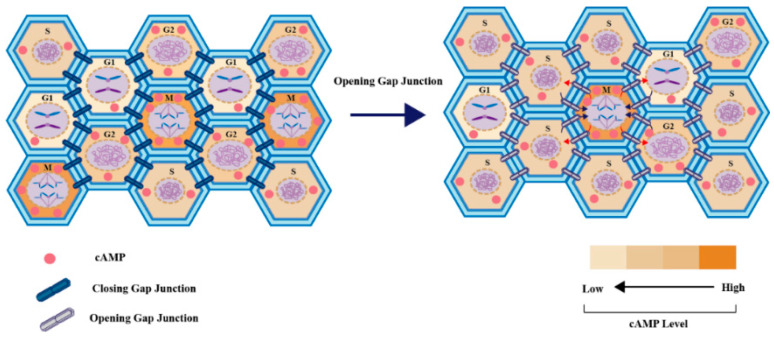Figure 3.
Gap junction-mediated transfer of cAMP limits the rate of mitosis of the whole tumor cell population. Changes in cAMP levels alter PKA activity to regulate cell cycle progression. Low levels of PKA activity help cells progress through the G1 and S phases to interphase. However, high levels of PKA activity are needed for cells to enter and exit the mitotic cycle. In the absence of gap junction-mediated communication, different cAMP levels in each cell result in different cell cycle stages in the population. However, the cell groups that maintain communication throughout the cell cycle exhibit a uniform distribution of cAMP, thereby, resulting in the dilution of cAMP (and decrease in P-PKA) in M-phase cells (leading to the inhibition of mitotic processes) and an increase in cAMP and PKA activity in G1/S-phase cells (leading to partial G1 phase arrest). Thus, cAMP redistribution delays the M phase and cell cycle progression through the interphase [21,63].

